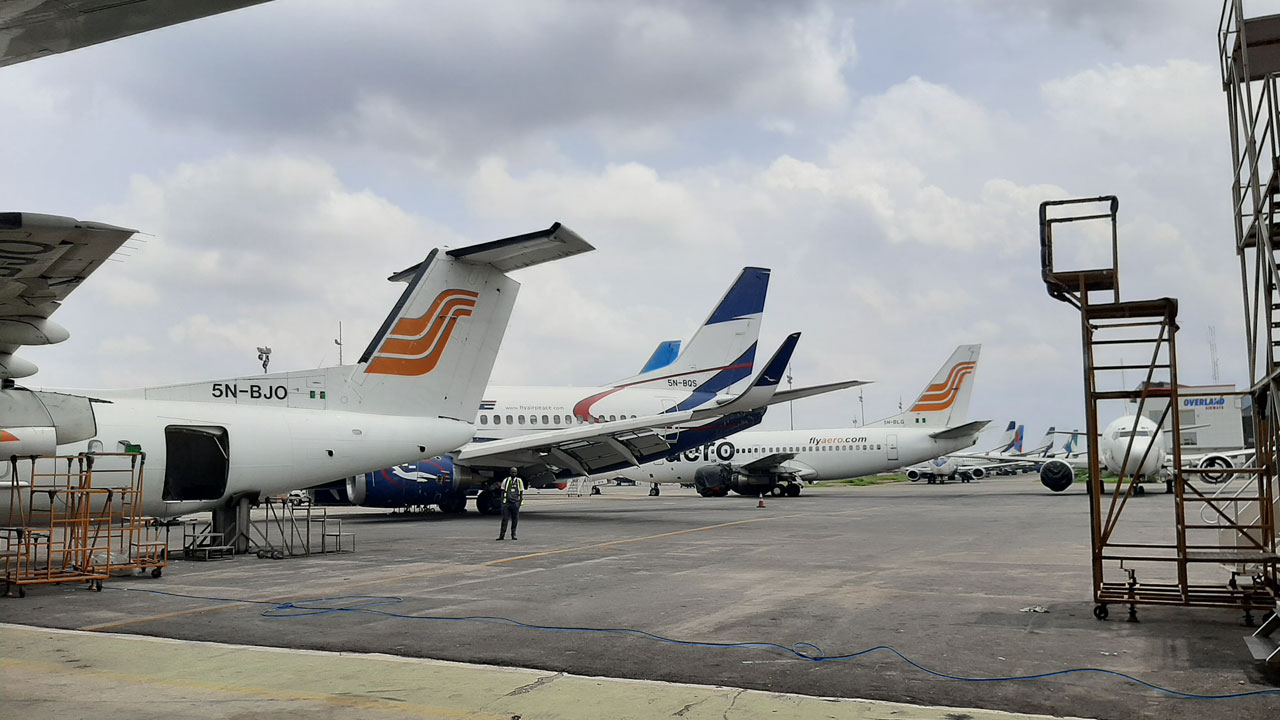
The punitive measures, among others, are contained in the new Civil Aviation Act 2022 that President Muhammadu Buhari recently assented into law.
The Nigeria Civil Aviation Authority (NCAA) had accused operators of deliberately stifling regulators and service providers of funds, by withholding statutory five per cent Ticket Sales Charge and Cargo Sales Charge (TSC/CSC) to the tune of over N19 billion and $7.8 million (N3.29 billion).
The airlines are also indebted to the Federal Airports Authority of Nigeria (FAAN) and the Nigerian Airspace Management Agency (NAMA) to the tune of N18 billion and N5 billion, in that order. The airlines owe FAAN landing and parking charges, while they are also hugely indebted to NAMA in terminal and navigational charges.
Director-General of the NCAA, Capt. Musa Nuhu, told reporters yesterday that the new Act had strengthened the industry to tackle reckless practices of airline operators and serial indebtedness to the agencies.
Under the Act, Section 23(10), the NCAA may delegate power to collect the five per cent TSC/CSC to the airlines, prescribe the manner and time for making remittances of funds collected on its behalf.
The Act equally places a N5,000,000 fine, two-year imprisonment, or both on operator’s directors whose airlines fail to remit these funds to the CAA within the specified time.
Besides penalties, Nuhu hinted that the Authority was also in the process of reviewing the revalidation of the Air Operators Certificate (AOC) from two to five years for scheduled operators, and three years for non-scheduled operators.
Nuhu explained that the provision came to the fore “as a response to our experience in the past in collecting those funds, which can be used to train and improve infrastructure in the industry.”
He added that the Authority had listened to complaints of operators as regards revalidation of AOCs.
“We are working on the review of the current validity. Within the first or early part of the first quarter of next year, it will come into effect and it will explain who is entitled. As soon as it is internally done, we will release the new review.
“The new consideration automatically extends re-validity to give five years for scheduled and three for unscheduled. Of course there are other changes and conditions. The fee for AOC now is N200,000. But that’s just a return ticket from Kano to Abuja compared to countries like Ghana that collect US$250,000. Yet, the effort we put into the process, from the preliminary to phase 2, phase 3, 4 and 5, is a lot. If you quantify it in financial terms, it is a lot. So we are going to look at that too.
“The fee for AOC will depend on the complexity of the operations and I think the five years gives a breather for the airlines and also on the part of the NCAA, it gives us a breather from paperwork from every two years and also free us to do other oversight functions such as surveillance,” he said.



